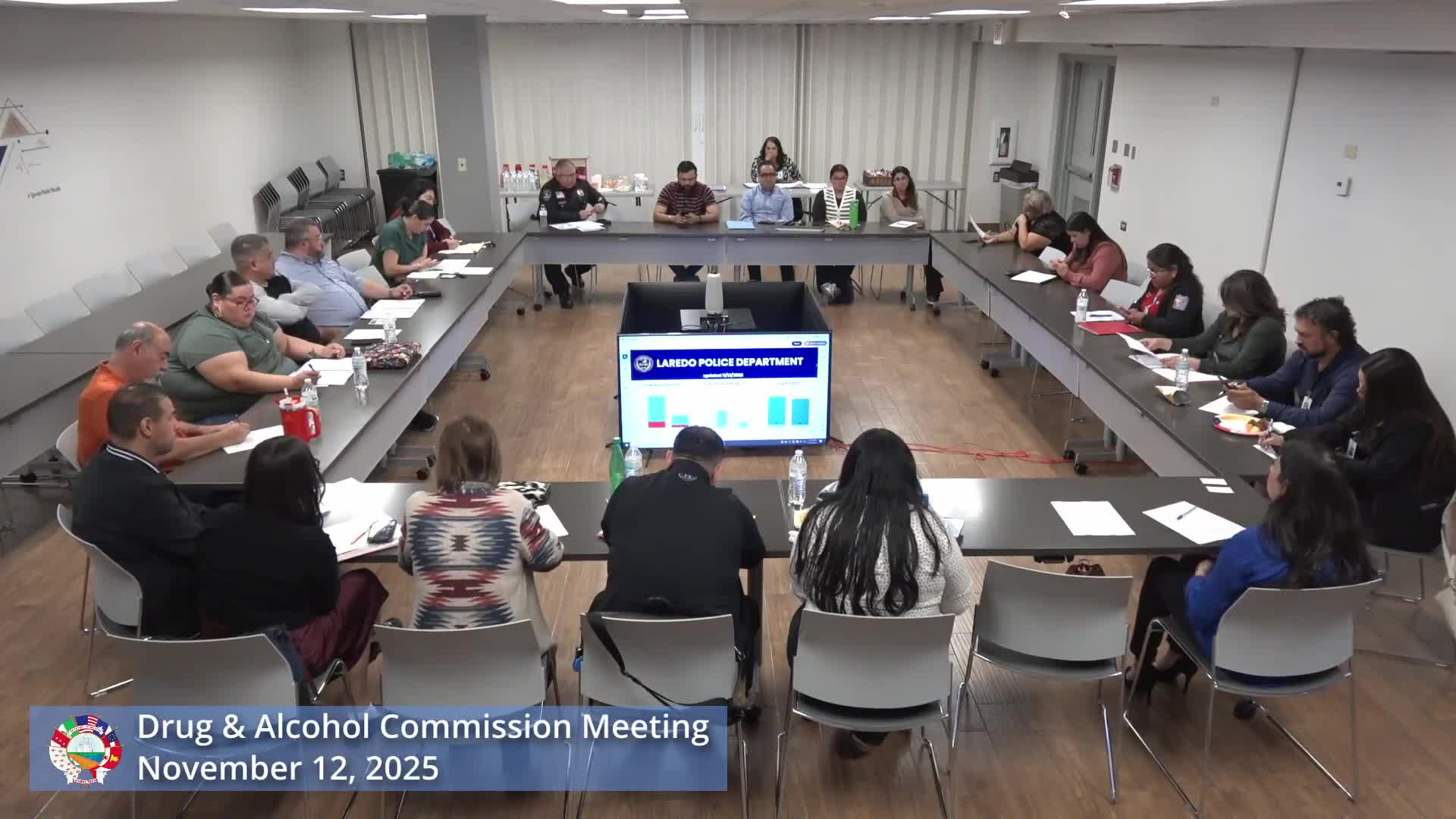County commission praises drop in overdose deaths, expands Narcan access and school outreach
Get AI-powered insights, summaries, and transcripts
Subscribe
Summary
At a November meeting in Laredo, officials reported lower year-to-date overdose deaths and outlined expanded naloxone access — new dispensaries and state-funded vending machines — while urging continued prevention and school-based outreach.
A County Drug and Alcohol Commission meeting in Laredo in November 2025 heard updates showing a decline in overdose deaths and moved to expand naloxone distribution and prevention work.
Chief Gonzales presented enforcement and fatality trends and said the jurisdiction has seen fewer overdose deaths this year. “This year, 14,” he reported, and showed multi-year totals to give context. He also said intoxication-related assaults and fatal roadway accidents have declined in recent years, and pointed to a concentrated overdose heat map on the city’s West Side.
Megan Perez, a regional coordinator for Behavioral Solutions of South Texas who said her group serves as the distribution hub for the Be Well grant, described the program’s naloxone work. She said the program is supplying free naloxone for clinics and community partners, helping school districts, and installing vending machines that dispense naloxone in public locations. “People are using it,” Perez said of one probation-office vending machine that needed weekly restocking after heavy use. Perez explained that Region 11 covers 19 counties including Laredo and offered bulk supply and training to local agencies.
Perez also advised community members about legal protections for people who assist during overdoses, referencing the state’s Good Samaritan provisions tied to Texas Senate Bill 1462, and offered to provide applications and technical help for vending-machine installation.
Public-health staff reviewed recent local Narcan-dispensary placements, including a preventative care clinic at 6801 McPherson Road and an upcoming point at the City of Laredo Tennis Complex (TAMIU). The health presenter said detailed overdose-surveillance data (ages, substances, locations) can be provided to the commission on request; commissioners asked for quarterly reporting to measure reach and compare presentations across agencies.
Commissioners repeatedly stressed outreach to schools and holiday-season prevention messaging, and the chair asked member agencies to submit presentation data so the commission can compile quarterly metrics on students and events reached. The commission also discussed logistics to make meetings easier to attend.
The commission approved minutes from Aug. 13, heard reports, and adjourned at about 12:35 p.m.; staff said they will continue to offer granular statistics and support for naloxone restocking and outreach.
